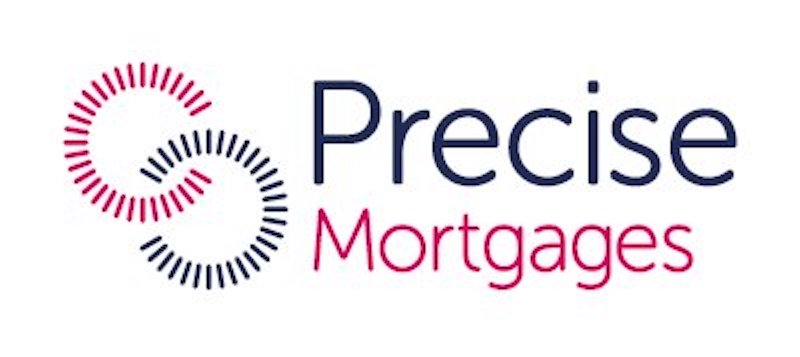Get a Mortgage After Bankruptcy
We have assisted over 10,000 customers with poor credit. We excel at it! Request FREE advice and prices with no strings attached. No initial credit check.
Free expert service
Rated 5 Star on Google
No impact to credit score
We're Bad Credit Mortgage specialists with access to the whole of the market!
Have you gone through bankruptcy, a debt management plan, or had a CCJ or default in the last 6 years? You need not worry! We are experts in the mortgage industry and work frequently with bad credit mortgage lenders who specialise in assisting people in your situation.






Is it possible to get a mortgage while on a debt management plan?
Yes it is, although it is very dependent on your unique circumstances. One of the most essential considerations for lenders when considering a debt management plan is whether the DMP is still current and, if not, how recently it was satisfied.
If you are already managing your debts through a DMP, your options will be far more limited because the majority of lenders, particularly high street banks, would not consider an unsatisfied DMP.
Whatever the present status of your DMP, it’s vital to remember that there will be lenders willing to consider your mortgage application; it’s just a matter of finding them – ideally through a specialised broker – and maybe accepting less competitive conditions.
How a broker can help you get a loan even if you have bad credit
If you have a debt management plan, it’s more important than ever to get help from a broker who specialises in bad credit mortgages. If you go it alone without knowing the best lenders for your needs, you could find yourself being declined with multiple lenders which may harm your credit file even more.
A mortgage broker for people with bad credit will understand how complicated your situation is and know what criteria different lenders will use to judge your application. They will also have relationships with specialist lenders who might be hard to get in touch with otherwise. A DMP mortgage is often more expensive, but a broker will do their best to find you the best deal and keep you from paying too much just because you have bad credit.

Remortgaging with a debt management plan
The procedure for remortgaging with negative credit is very identical to that of getting a new mortgage, with the possible exception of a few minor details. A product swap with your current lender could be one option, since they will already know you and your financial situation and may be more willing to accept the DMP because of the established relationship.
Having a low loan-to-value (LTV) ratio is viewed favourably by lenders even if you have negative credit, so having a lot of equity in your property is a big plus. If you are current on your Debt Management Plan (DMP), you may be able to use the proceeds from a remortgage to pay off any outstanding obligations and start fresh. If you’re able to remortgage, your other monthly repayment obligations will be decreased, which may be taken into account by lenders when determining your loan’s affordability.

Getting a buy-to-let mortgage with a DMP
Borrowers seeking a buy-to-let mortgage using a DMP will be subject to the same regulations as homeowners, but there are still many lenders who will consider them.”
You can lessen the blow of your DMP by demonstrating your credentials as a landlord, the strength of the market for comparable properties, and the reliability of your projected rental revenue. Speak to our specialists who are experts on helping those with poor credit get buy-to-let mortgages.

4 Reasons why to use us?
We believe that everyone deserves the opportunity to own their own property and recover from an adverse credit history. We put you in touch with a specialist mortgage advisor who has access to the whole of the UK mortgage market and will help you secure the best bad credit mortgage deals for you in your current circumstances.
Quick quote calculator
Our approach - and how we do it
Get in touch!
We love speaking with our clients. Give us a call, fill in one of our contact form or chat with us on 0330 043 1143 right away!

We’ll introduce you for free
We’ll put you in touch with one of our qualified mortgage advisors who will discuss your options and answer your questions.

... and relax!
With the expert advice you’ll be able to find the best mortgage deal for your particular circumstances.
See what others think ...

Steven Brunning
Aidan and Kayleigh were absolutely brilliant. They were very pro-active throughout and gave us confidence that they were identifying the most appropriate products on the market for our needs! We felt very reassured and are grateful for them helping the transaction to run as smoothly as possible.
Zara Akhtar
From the very start Michael, who I initially spoke with was the extremely helpful and professional. I was struggling to find a lender due to my personal circumstances. Michael was very open and honest with me and actually managed to find a lender who would consider my circumstances. This is something other brokers were unable to do!
I started my mortgage journey thinking I could never get a mortgage, well if I did I would be a long time due to a few mistakes I made back when I was a student. I got speaking to Luke Grosse. After months of searching things couldn’t of gone smoother on his end, he got me a mortgage offer. Easy to talk to, straight forward, explained everything in detail while being patient. Couldn’t recommend this company and Luke in particular any higher as my experience with them was fantastic. Finally completed on my purchase today and now I am a home owner with my fiancé.
This being our first property purchase, we were very unfamiliar with the how things worked. With the support and help by these two fine ladies, we were able to steer in the right direction. We had constant communication throughout the process and communication was key in these purchase too. I definitely speak highly and recommend others the mortgage advisor as they were always willing to help and support us in any way possible.
Find a broker who works with people with bad credit.
It may not be easy to get a mortgage with a DMP, but if Contact one of our specialist brokers who knows and has worked with bad credit mortgage lenders, you’ll give yourself the best chance of getting the loan you need.

Let us find your perfect mortgage.
We’ll put you in touch with impartial advice from a qualified advisor to help you get the best mortgage deals available to you.
Meet our experts
Michael Buckley
Director / Mortgage & Protection Advisor
Aidan Comerford
Sales Manager
Luke Grosse
Mortgage & Protection Advisor
Chris Kenny
Mortgage & Protection Advisor